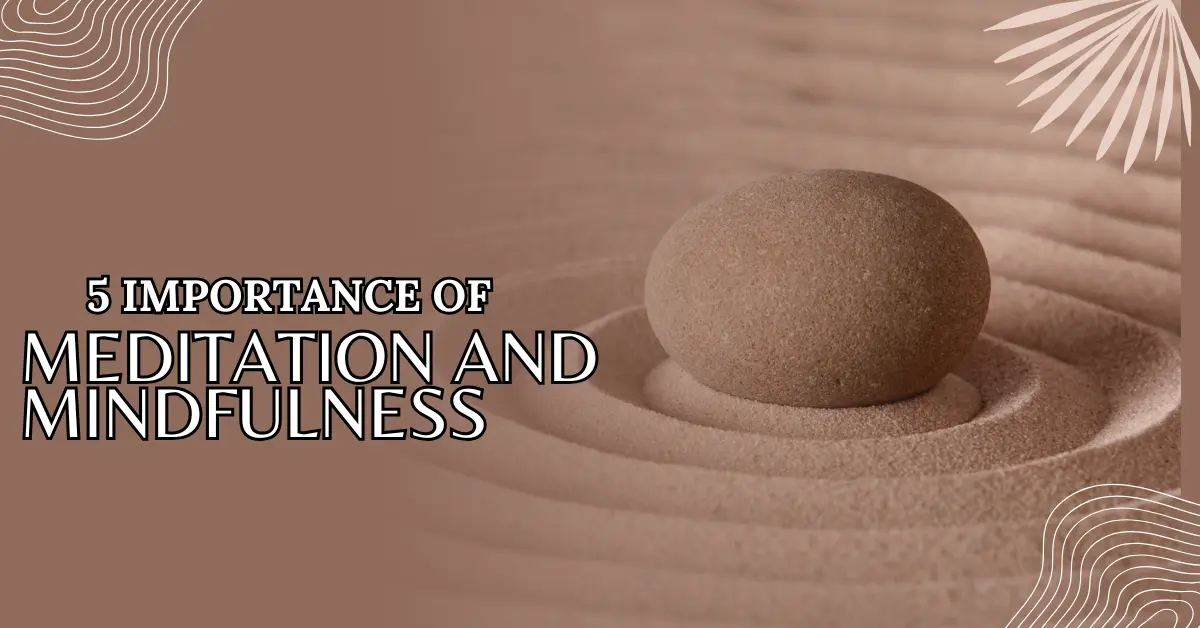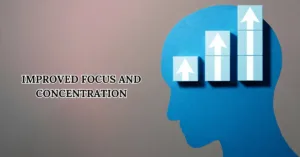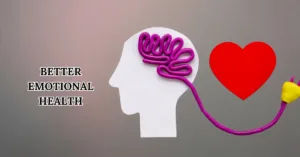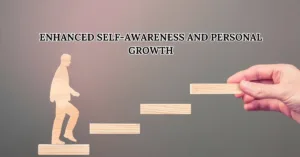
Meditation and mindfulness are important because they help calm the mind and reduce stress. By focusing on the present moment, you can clear your thoughts, feel more relaxed, and improve your mood. Regular practice can lead to better concentration, making it easier to handle daily tasks and challenges. It also promotes emotional health by reducing anxiety and boosting positive feelings. Mindfulness helps you become more aware of your thoughts and emotions, making it easier to respond to situations calmly. Overall, meditation and mindfulness support mental well-being, improve focus, and create a sense of peace and balance in life.
5 Importance of Meditation and Mindfulness
In today’s fast-paced world, many people are turning to meditation and mindfulness to find peace and balance in their lives. These practices have been around for thousands of years, but they’re now becoming more popular than ever. In this blog post, we’ll look at five key importance of meditation and mindfulness that are so essential for our overall well-being.
Stress Reduction

One of the biggest benefits of meditation and mindfulness is their ability to reduce stress. In our daily lives, we often face many stressful situations that can take a toll on our mental and physical health. Meditation gives us a way to calm our minds and relax our bodies, which helps lower stress levels.
When we meditate, we concentrate on the current point and let go of concerns about the past or destiny. This easy act can make a big distinction in how we handle it. Regular meditation can help lower the amount of stress hormones in our bodies, like cortisol. This can lead to feeling more relaxed and at ease throughout the day.
Mindfulness, which is closely related to meditation, also helps with stress. By being mindful, we learn to notice our thoughts and feelings without judging them. This can help us handle stressful situations better and not get too caught up in negative thinking.
Some simple ways to practice stress reduction through meditation and mindfulness include:
- Take a few deep breaths when you feel stressed
- Spending a few minutes each day sitting quietly and focusing on your breath
- Noticing the small details in your surroundings as you go about your day
By making these practices a regular part of your routine, you can start to feel less stressed and more in control of your reactions to life’s challenges.
Improved Focus and Concentration

In today’s world, it’s easy to get distracted. We’re always bombarded with information from our phones, computers, and other devices. This can make it hard to focus on important tasks. Meditation and mindfulness can help improve our ability to concentrate and stay focused.
When we meditate, we practice keeping our attention on one thing, like our breath or a specific phrase. This trains our brains to be better at focusing. Over time, this can help us concentrate better in other areas of our lives, like at work or school.
Mindfulness also helps with focus by teaching us to be more aware of the present moment. When we’re mindful, we’re less likely to let our thoughts wander or get caught up in distractions. This can lead to better productivity and a greater sense of accomplishment in our daily tasks.
Some ways to use meditation and mindfulness to improve focus include:
- Starting your day with a short meditation to set a focused tone
- Taking mindful breaks throughout the day to reset your attention
- Practicing mindful listening during conversations to stay engaged
By improving your focus through these practices, you may find that you can get more done in less time and feel more satisfied with your work.
Better Emotional Health

Meditation and mindfulness can have a big impact on our emotional well-being. These practices help us understand and manage our emotions better, which can lead to improved mental health and happier relationships.
Through meditation, we learn to observe our thoughts and feelings without getting caught up in them. This can help us respond to emotional situations in a calmer, more balanced way. It can also help us develop more self-awareness and compassion for ourselves and others.
Mindfulness helps us recognize our emotions as they come up, rather than pushing them away or letting them take over. This awareness can help us make better choices about how to respond to our feelings. It can also help us appreciate positive emotions more fully when we experience them.
Some benefits of meditation and mindfulness for emotional health include:
- Reduced symptoms of anxiety and depression
- Increased self-esteem and self-acceptance
- Better ability to handle difficult emotions
- A more positive outlook on life
To start improving your emotional health through these practices, you could try:
- Keeping a mindfulness journal to track your emotions
- Practicing loving-kindness meditation to build compassion
- Using mindful breathing techniques when strong emotions come up
By working on your emotional health through meditation and mindfulness, you may find that you feel more balanced and better able to handle life’s ups and downs.
Physical Health Benefits

While meditation and mindfulness are often thought of as mental practices, they can also have positive effects on our physical health. Research has shown that regular meditation can lead to several improvements in our bodies.
One of the main physical benefits of meditation is lower blood pressure. By helping us relax and reduce stress, meditation can have a positive effect on our cardiovascular health. This can be especially helpful for people who are at risk for heart disease.
Meditation has also been linked to stronger immune systems. Some studies have found that people who meditate regularly may get sick less often and recover more quickly when they do get ill. This could be because meditation helps reduce inflammation in the body.
Other physical health benefits of meditation and mindfulness may include:
- Reduced chronic pain
- Better sleep quality
- Improved digestion
- Lower risk of certain diseases
To start experiencing these physical benefits, you could try:
- Doing a body scan meditation to increase body awareness
- Practicing mindful eating to improve digestion
- Using meditation to help manage chronic pain
Remember, while meditation can have many health benefits, it’s not a substitute for medical care. Always talk to your doctor about any health concerns you have.
Enhanced Self-Awareness and Personal Growth

One of the most powerful aspects of meditation and mindfulness is how they can help us grow as individuals. These practices give us tools to understand ourselves better and make positive changes in our lives.
Through meditation, we learn to observe our thoughts and behaviors without judgment. This can help us recognize patterns in our thinking or actions that might not be serving us well. Once we’re aware of these patterns, we can start to change them.
Mindfulness helps us stay present and aware throughout our day. This can lead to a deeper understanding of our values, goals, and what truly matters to us. It can also help us make decisions that are more in line with our authentic selves.
Some ways meditation and mindfulness can support personal growth include:
- Helping us identify and work towards our goals
- Increasing our ability to make mindful choices
- Improving our relationships by making us more present and empathetic
- Boosting creativity by clearing mental clutter
To use meditation and mindfulness for personal growth, you could:
- Set aside time for regular self-reflection through meditation
- Practice mindfulness during daily activities to increase self-awareness
- Use guided meditations focused on personal growth topics
By making meditation and mindfulness part of your growth journey, you may find that you become more confident, self-aware, and aligned with your true self.
Conclusion
Meditation and mindfulness are powerful tools that can help us in many areas of our lives. From reducing stress and improving focus to boosting our emotional and physical health, these practices offer a wide range of benefits. They can also help us grow as individuals and live more authentic, fulfilling lives.
The best part is that anyone can start practicing meditation and mindfulness. You don’t need any special equipment or skills. All you need is a willingness to set aside some time each day to sit quietly and focus on the present moment.
If you’re new to meditation and mindfulness, start small. Even only a few minutes a daytime can make a distinction. There are many resources available, including apps, books, and classes, that can help you get started.
Remember, like any skill, meditation, and mindfulness take practice. Don’t get frustrated if your mind wanders or if you find it difficult at first. With time and patience, you’ll likely start to notice positive changes in your life.
By making meditation and mindfulness part of your daily routine, you’re taking an important step towards improving your overall well-being. Why not give it a try and notice how it can help you?
FAQs
Q: Why is meditation important?
A: Meditation helps calm the mind, reduce stress, and improve focus. It allows you to relax, think clearly, and handle daily challenges better, leading to a healthier and more balanced lifestyle.
Q: How does mindfulness benefit mental health?
A: Mindfulness helps you stay present, reduces anxiety, and boosts mental clarity. Focusing on the moment prevents overthinking and promotes peace of mind, which supports overall mental well-being.
Q: Can meditation improve concentration?
A: Yes, regular meditation sharpens your concentration by training the mind to focus better. It reduces distractions, enhances memory, and helps you stay attentive, making it easier to complete tasks efficiently.
Q: How does meditation affect sleep?
A: Meditation helps relax the mind and body, making it easier to fall asleep and stay asleep. It reduces stress and anxiety, leading to better, more restful sleep each night.
Q: Is mindfulness helpful for managing emotions?
A: Yes, mindfulness teaches you to observe your feelings without reacting immediately. It helps you understand and manage emotions better, promoting a calm and positive approach to challenges and stress.
Also Read:
How Practicing Mindfulness Can Improve Mental Health and Well-being
The Benefits of Meditation and Mindfulness
References:
https://pmc.ncbi.nlm.nih.gov/articles/PMC7287297/
https://pmc.ncbi.nlm.nih.gov/articles/PMC10355843/
https://en.wikipedia.org/wiki/Mindfulness
Disclaimer:
The information provided on “5 Importance of Meditation and Mindfulness” is for general informational purposes only. It is not intended as medical advice. Please consult a healthcare professional before starting any new wellness or mindfulness practices.
Related post

7 Health Benefits of Assam Tea


